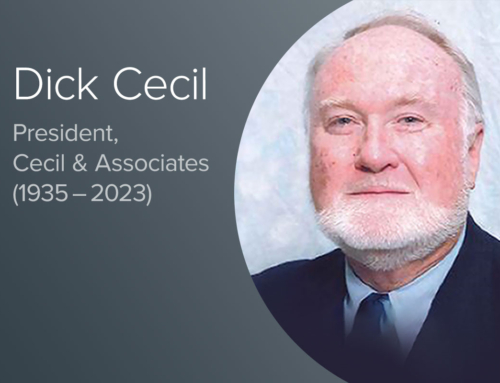America has just witnessed a remarkable case study in how to communicate in a tense, and often hostile, environment.
Depending on how you keep score of Supreme Court confirmation hearings, most would agree that Judge Ketanji Brown Jackson either did well enough — or did not mess up badly enough — to be named the next Supreme Court Justice.
Indeed, many successful politicians have mastered the art of public speaking. Clips from political debates often are held up as examples in media training sessions as they demonstrate how seasoned pros use bridging techniques to redirect the conversation. Did Judge Jackson’s confirmation hearing produce sound bites that can serve as teachable moments for other business leaders and spokespersons?
In short: Yes. Judge Jackson did well at handling very hard and, at times, tricky questions from politicians who are expert at tricky questioning and setting verbal traps for witnesses. While business and nonprofit leaders may not encounter the intensity and publicity of a Senate hearing, addressing challenging issues with their key stakeholders and interested audiences can put them in their own version of a Senate hearing hot seat.
I observed multiple interview best practices on center stage for the Supreme Court Senate confirmation hearing. Here are a few worthy of note and how they are relevant to business leaders:
- Understand Your Objective: Know why you are there, whether a news conference, shareholders’ meeting or employee town hall. Make sure the messages and main ideas you seek to convey are consistently communicated. Judge Jackson seemed to know that she needed to hold the vote of Democrat senators and not provide a “made-for-TV” moment for Republican senators to generate a groundswell to oppose her nomination. I think she did this well.
- Do Your Homework — Be Prepared: Whether a politician or business leader, gather your team and consider in advance any and every question you may be asked. Practice how to answer them. Write the questions down and study them again and again. Don’t assume. Don’t adlib. Don’t guess at an answer. Without question, the political and legal staff at the White House prepared Judge Jackson well for nearly any question that came her way.
- Convey Expertise, Confidence and Concern: You are at the front of the room. Like it or not, you are the expert, the one from whom all the others in the room have come to hear. With your objective in mind, and with confidence in your preparation, be the boss in sharing facts or expressing sincere concern. Judge Jackson was the only person at the witness table for 22 senators questioning her over 22 hours. While she seemed uncomfortable being in such focus, she also seemed in command of every response.
- Talk Slowly and Clearly: Keeping an even tempo when speaking signifies that you’re relaxed and allows your words to have more weight and power. It conveys confidence and expertise. Judge Jackson was measured, consistent in her presentation and clear and to-the-point in nearly every response.
- Answer in Complete Sentences: Whether taught by your parents, your elementary school teachers or the public relations staff in your company, this is not only a good practice to reduce confusion or misinterpretation, it’s respectful of your audience and your position. It is how leaders lead. It also reduces the chance of commentary being taken out of context.
- Get To the Point — Don’t Pontificate: Avoid unnecessary adjectives. Drop the verbal fillers that you think may help you to connect with your audience. Don’t get too scientific, use inside-baseball acronyms or overly technical terminology. Don’t preach. Just the facts, please. This was a strong point of Judge Jackson’s testimony.
As an objective communications professional, it is my judgment that Judge Jackson did all the above rather well. She also seemed to rise to the occasion with sincere respect for the solemnity of the process and the history of the moment.
Whether she is appointed to the U.S. Supreme Court is not the point. My objective was to lean on the high awareness of this event to highlight interview best practices for those of us running companies or nonprofits, or advising those who do, so that we or they may be better prepared when standing in the front of the room.
In our media training activities, successful politicians are often good case studies for how to answer — or not answer — difficult questioning from media representatives. Supreme Court Senate Confirmation Hearings can be similar. Studying Judge Jackson’s demeanor, command of issues, respectful restraint and appropriate-if-subdued expressions of emotion is a good learning opportunity for others who find themselves in the front of the room.








